Ph.D. - Physics
Harvard University - 1982
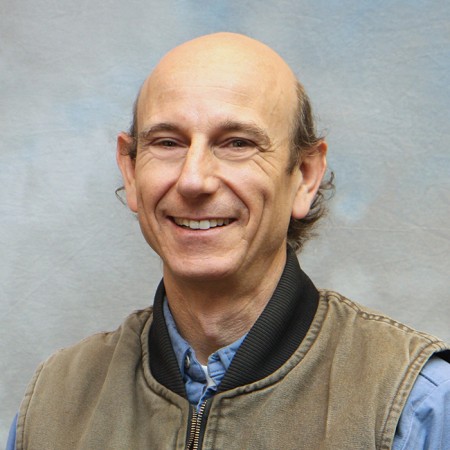
Joseph Izen
Emeritus Professor - Physics
Professional Preparation
A.M. - Physics
Harvard University - 1978
Harvard University - 1978
B.S. - Physics & Mathematics
The Cooper Union - 1977
The Cooper Union - 1977
Research Areas
Research Interests
- Proton collisions produced at CERN's Large Hadron Collider (LHC)
- Higgs Boson
- Search for dark matter and dark gauge bosons
- Pixel and scilicon strip detectors for charged-particle tracking
- Flavor physics at electron-positron colliders
Publications
Search for an invisibly decaying Higgs boson or dark matter candidates produced in association with a Z boson in pp collisions at s=13 TeV with the ATLAS detector 2018 - Journal Article
Measurement of differential cross sections of isolated-photon plus heavy-flavour jet production in pp collisions at s=8 TeV using the ATLAS detector 2018 - Journal Article
Search for diboson resonances with boson-tagged jets in pp collisions at s=13 TeV with the ATLAS detector 2018 - Journal Article
Search for Heavy Higgs Bosons A /H Decaying to a Top Quark Pair in pp Collisions at s =8 TeV with the ATLAS Detector 2017 - Journal Article
Probing the W tb vertex structure in t-channel single-top-quark production and decay in pp collisions at √s=8 TeV with the ATLAS detector 2017 - Journal Article
Awards
UT System Regents’ Oustanding Teaching Award - [2012]
Appointments
Professor Emeritus
University of Texas at Dallas [2022–Present]
University of Texas at Dallas [2022–Present]
Professor
University of Texas at Dallas [1999–2022]
University of Texas at Dallas [1999–2022]
Visiting Associate Professor
Colorado State University [1994–1997]
Colorado State University [1994–1997]
Associate Professor
University of Texas at Dallas [1994–1999]
University of Texas at Dallas [1994–1999]
Assistant Professor
University of Texas at Dallas [1991–1994]
University of Texas at Dallas [1991–1994]
Assistant Professor
University of Illinois at Urbana-Champaign [1986–1991]
University of Illinois at Urbana-Champaign [1986–1991]
Project Associate
University of Wisconsin at Madison [1982–1985]
University of Wisconsin at Madison [1982–1985]
Research Assistant
Harvard University [1977–1982]
Harvard University [1977–1982]
Additional Information
Professional Service Activities
Service to the University- Faculty Senate (2007-2010, 2011-2013, 2014-2022)
- Academic Council (2007-2008, 2016-2021)
- GEMS Math and Science Education Council (2008-2010)
- Chair, Advisory Committee (the “shepherd”) during the design and construction of the UTD
- Science Learning Center building (2007-2010)
- Physics Undergraduate Curriculum Committee (Chair; 2004-2010, member, 2011-present)
- Physics Graduate Curriculum Committee (2004-2010)
- Physics Department liason to the Texas Astronomical Society (2005-2010)
- “On call” to meet with prospective Physics majors and their parents (2006-2010, 2011-present)
- Faculty adviser, Comet Hockey Club (2001-Spring 2010)
- Co-Faculty adviser, Women in Physics (2007-Spring 2010)
- Faculty Adviser, Graduate Students in Physics (2018-Present)
- Faculty Adviser, UTD Contracorners (2019-Present)
- Grant Reviewer, Department of Energy, Division of High Energy Physics
- Publication Referee, Physical Review/Physical Review Letters
- ATLAS Collaboration Board
- ATLAS Pixel Institutional Board
- BABAR Collaboration Council
Overview
Dr. Izen is an high energy particle physics experimentalist exploring high-energy proton collisions produced at CERN's Large Hadron collider with the ATLAS experiment and electron-positron collisions produced at the SLAC National Accelerator Laboratory's PEP-2 collider with the BaBar experiment.Honors
- Henri D. Dickinson Fund Prize, best record of B.S. recipients, Cooper Union, 1977
- Cooper Union Alumni Association Award, 1977
- Eli Lilly Teaching Fellow, 1987-1988
- National Science Foundation – Center for Global Partnership Fellow, 1997-1998
- University of Texas Regents’ Outstanding Teaching Award, 2012
- CERN Scientific Associate, 2013-2014
News Articles
For Physics Groups, Love of Astronomy Was Always Written in the Stars
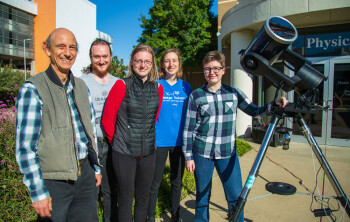 Victoria Catlett’s father bought The University of Texas at Dallas junior a telescope at the age of 9, thus igniting a love of astronomy that has continued since childhood. The two would spend evenings searching for constellations in the evening sky.
Victoria Catlett’s father bought The University of Texas at Dallas junior a telescope at the age of 9, thus igniting a love of astronomy that has continued since childhood. The two would spend evenings searching for constellations in the evening sky. Now a physics and mathematics double major, Catlett is the business chair and unofficial “astronomy officer” for the Society of Physics Students (SPS) at UT Dallas. As such, Catlett is part of a team of students who are instrumental in organizing star parties, telescope training and watch parties for events such as solar and lunar eclipses.
“I’ve always loved thinking about outer space. It kind of reminds us of our place in the solar system. Astronomy lets me explore it from the ground,” Catlett said.
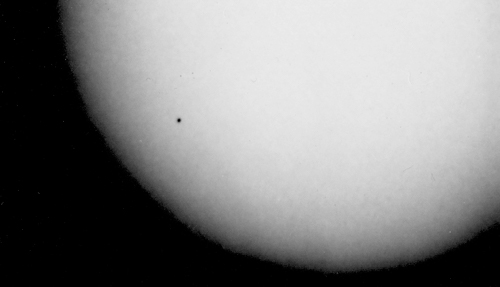 Dr. Joseph Izen took this photo of the transit of Mercury in 1973.When: 8 a.m. Monday, Nov. 11
Dr. Joseph Izen took this photo of the transit of Mercury in 1973.When: 8 a.m. Monday, Nov. 11Where: Grassy area on the north side of the Student UnionStudents in the SPS and the Graduate Students in Physics (GSP) are helping to organize a Nov. 11 watch party on campus for the transit of Mercury — the astronomical term for the event — w
hen the silhouette of the planet will appear as a tiny black spot moving across the disk of the sun.
Astronomical events are often popular at UT Dallas, which has enjoyed a rich history of research in the Department of Physics and the William B. Hanson Center for Space Sciences. In January, about 500 spectators — including members of the Texas Astronomical Society of Dallas — gathered to watch the lunar eclipse from Parking Structure 3. Students also filled the mall area in August 2017 to watch a solar eclipse.
“We understand so little about what is out there in the universe,” said Eske Pedersen, a physics PhD student and former treasurer for the GSP. “When you look at something like the rings of Saturn, you realize how large they actually are — bigger even than the Earth.”
Sky watchers are particularly looking forward to the transit of Mercury. Although there are about 13 transits each century of the innermost planet of the solar system, the next one visible from the U.S. won’t occur until 2049.
“This will be the first Mercury transit for the Society of Physics Students and [other campus] astronomers, so they are probably as excited as I was in 1973 when I first saw it during my freshman year in college,” said Dr. Joseph Izen, professor of physics. “It will be a long wait until 2049 — when I will be 96 — so I am going all out on Nov. 11. I plan to record the event with three telescopes, and I will be gawking with the very same telescope I used in 1973.”
“We want students passing by to ask themselves what all those people are doing over there looking at the sun with telescopes. We are hoping they will find it interesting. This is an event that won’t happen again until they are in their 50s.”The main watch-party area will be on the grassy area on the north side of the Student Union facing Founders Building, where several telescopes will be set up for students. Izen and members of the Texas Astronomical Society will be taking photos and video on the lawn next to the Visitor Center and traffic circle.
Eske Pedersen, a physics PhD student at UT Dallas
The transit will be visible in North Texas from sunrise until noon, but the best viewing from the Student Union green area will begin around 8 a.m. Observers should follow appropriate safety precautions, including never looking at the sun with the naked eye or through binoculars or telescopes that aren’t equipped with the proper filters.
“It’s potentially dangerous to view the sun with a telescope. You need a secure solar filter,” Catlett said, adding that watch-party organizers will have proper filtration on each telescope for safe solar viewing.
Pedersen said he hopes many UT Dallas students will be curious about the Mercury transit and come take a look.
“We want students passing by to ask themselves what all those people are doing over there looking at the sun with telescopes. We are hoping they will find it interesting. This is an event that won’t happen again until they are in their 50s,” Pedersen said.
Restarting The Large Hadron Collider: The Quest For Micro Black Holes
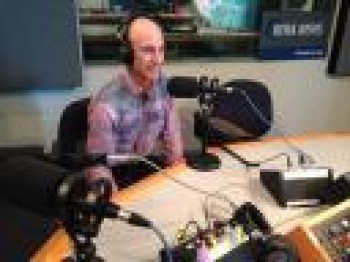 (March 20, 2015) A device as complicated as the Large Hadron Collider in Switzerland is bound to have a few technical hiccups. A short circuit stalled its reboot – and scientists aren’t exactly sure when it’ll be fixed. Professor Joseph Izen is part of the team from the University of Texas at Dallas that works on the collider. He joined KERA’s Justin Martin to talk about what they hope to achieve when the device restarts.
(March 20, 2015) A device as complicated as the Large Hadron Collider in Switzerland is bound to have a few technical hiccups. A short circuit stalled its reboot – and scientists aren’t exactly sure when it’ll be fixed. Professor Joseph Izen is part of the team from the University of Texas at Dallas that works on the collider. He joined KERA’s Justin Martin to talk about what they hope to achieve when the device restarts.
Nobel Prize Announcement is Reason for UT Dallas Team to Celebrate
 As the winners of the 2013 Nobel Prize in physics were announced Tuesday, UT Dallas physics professor Dr. Joe Izen was at a conference in Morocco, surrounded by fellow physicists watching the announcement live via webcast. “Our room erupted in spontaneous applause as the prize was announced,” Izen said. The Royal Swedish Academy of Sciences awarded the prize to theorists Peter Higgs of Britain and Francois Englert of Belgium in recognition of their work developing the theory of how particles of matter acquire mass. Hundreds of U.S. scientists, including a team from UT Dallas led by Izen, also have reason to celebrate. These experimentalists confirmed the theorists’ ideas in July 2012 when they discovered the so-called Higgs particle, or Higgs boson, at the CERN research facility in Geneva.
As the winners of the 2013 Nobel Prize in physics were announced Tuesday, UT Dallas physics professor Dr. Joe Izen was at a conference in Morocco, surrounded by fellow physicists watching the announcement live via webcast. “Our room erupted in spontaneous applause as the prize was announced,” Izen said. The Royal Swedish Academy of Sciences awarded the prize to theorists Peter Higgs of Britain and Francois Englert of Belgium in recognition of their work developing the theory of how particles of matter acquire mass. Hundreds of U.S. scientists, including a team from UT Dallas led by Izen, also have reason to celebrate. These experimentalists confirmed the theorists’ ideas in July 2012 when they discovered the so-called Higgs particle, or Higgs boson, at the CERN research facility in Geneva.
Prof Honored for Ability to Unlock Secrets of Physics
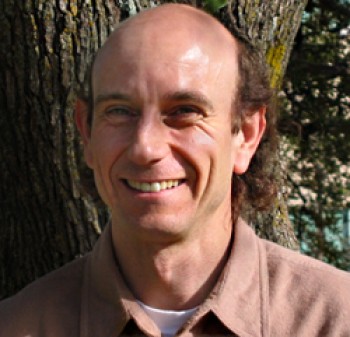 Dr. Joseph Izen, professor of physics at UT Dallas, is one of two faculty members to receive a 2012 Regents’ Outstanding Teaching Award, which recognizes extraordinary performance and dedication to excellence in the classroom. A total of 65 educators from institutions within the University of Texas System received the 2012 award, which is the highest honor given by the UT System Board of Regents. Izen learned of his Regents’ Award selection while working on an experiment called ATLAS at the Large Hadron Collider at CERN, the European Laboratory for Particle Physics located near Geneva, Switzerland. As a member of the ATLAS team, Izen was part of an international research collaboration that recently found compelling evidence for the Higgs boson, a long-sought-after elementary particle.
Dr. Joseph Izen, professor of physics at UT Dallas, is one of two faculty members to receive a 2012 Regents’ Outstanding Teaching Award, which recognizes extraordinary performance and dedication to excellence in the classroom. A total of 65 educators from institutions within the University of Texas System received the 2012 award, which is the highest honor given by the UT System Board of Regents. Izen learned of his Regents’ Award selection while working on an experiment called ATLAS at the Large Hadron Collider at CERN, the European Laboratory for Particle Physics located near Geneva, Switzerland. As a member of the ATLAS team, Izen was part of an international research collaboration that recently found compelling evidence for the Higgs boson, a long-sought-after elementary particle.
Regents' Teaching Awards Praise 2 UT Dallas Profs
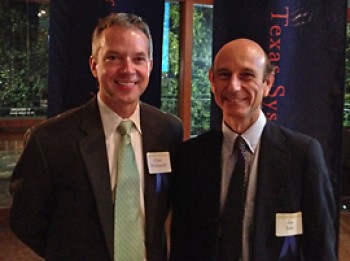 Two UT Dallas professors are among the 65 faculty members from institutions across The University of Texas System that have been honored by the UT System Board of Regents as recipients of the 2012 Regents’ Outstanding Teaching Award. The UT Dallas honorees are Dr. Joseph Izen, professor of physics; and Dr. Clint Peinhardt, an assistant professor of political science. “We have a responsibility as a Board to support, encourage and reward our most innovative and effective educators. These annual awards help advance a culture of excellence and recognize outstanding performance in the classroom and laboratory that directly benefit our students for life,” Regents’ Chairman Gene Powell said. “On behalf of the Board of Regents, I congratulate each of these dedicated professionals for their commitment to exceptional teaching and providing an education of the first class for our students.”
Two UT Dallas professors are among the 65 faculty members from institutions across The University of Texas System that have been honored by the UT System Board of Regents as recipients of the 2012 Regents’ Outstanding Teaching Award. The UT Dallas honorees are Dr. Joseph Izen, professor of physics; and Dr. Clint Peinhardt, an assistant professor of political science. “We have a responsibility as a Board to support, encourage and reward our most innovative and effective educators. These annual awards help advance a culture of excellence and recognize outstanding performance in the classroom and laboratory that directly benefit our students for life,” Regents’ Chairman Gene Powell said. “On behalf of the Board of Regents, I congratulate each of these dedicated professionals for their commitment to exceptional teaching and providing an education of the first class for our students.”